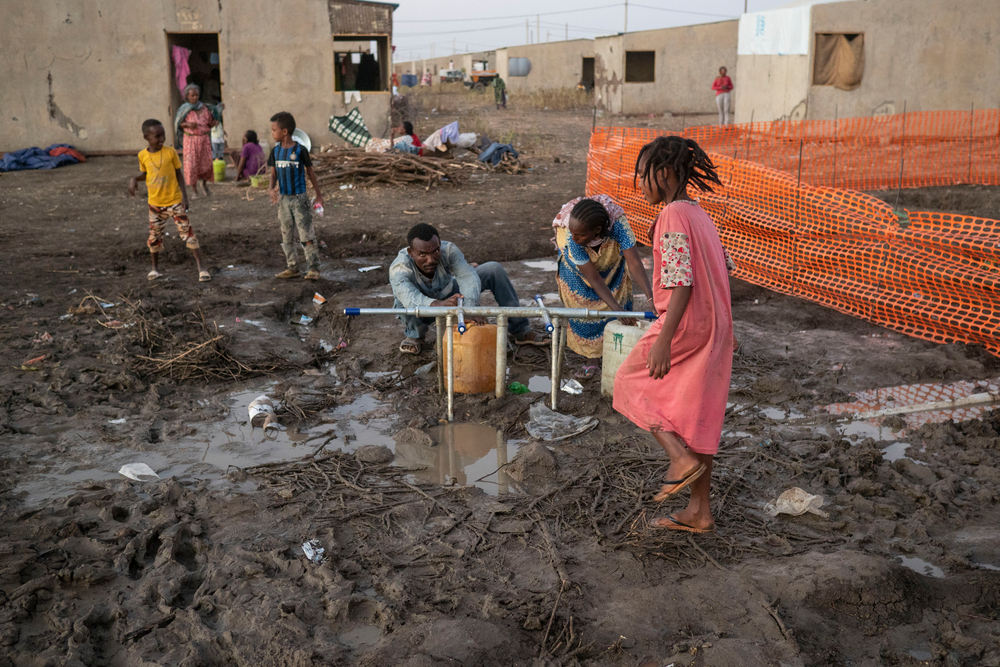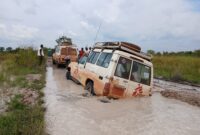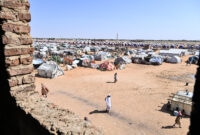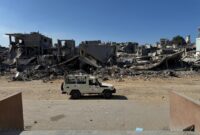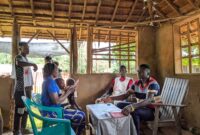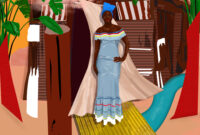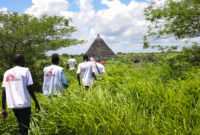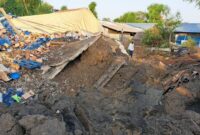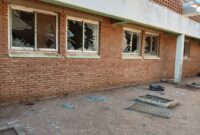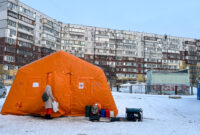Sudan: ‘New arrivals are exhausted and in a worse health condition’
Kiera Sargeant, former Doctors Without Borders/Médecins Sans Frontières (MSF) medical coordinator in Sudan, describes MSF’s response to the refugee crisis on the Ethiopian border
What is happening at the border between Sudan and Ethiopia?
“In early November 2020, new arrivals from the Tigray region of Ethiopia started crossing into Sudan at two points, Hamdayet and Ludgi. Initially it was just a small number of refugees but then it increased to more than 1,000 new arrivals a day. In total over 55,000 refugees have arrived from Tigray, Ethiopia since then.
The refugees are staying in Kassala and Gedaref states. In Gedaref, there are two permanent official camps, Um Rakuba and a new camp, Al Tanideba. The transport of the refugees from the border reception camps to the official camps in Gedaref can take between 10 to 15 hours.”
How is MSF responding to the influx of refugees?
“MSF has been working in Sudan for many years already. I arrived in September 2020 to help start new activities in Kassala and South Darfur. At that time, Sudan was in the process of recovering from severe floods and there were reports of viral haemorrhagic fever in two states to which MSF also provided some support. However, when fighting erupted in Ethiopia in early November, we adapted our approach and headed for the Ethiopian border. On November 19, we set up our first clinic in Gedaref.
We are now scaling up our activities at the border crossing locations and in the two permanent official camps Um Rakuba and Al Tanideba. In these permanent camps, we will be providing primary healthcare, reproductive healthcare, mental healthcare, vaccination, malnutrition treatment and treatment for chronic health conditions. We are also preparing an inpatient care department and provision of water and sanitation facilities. Our activities always include engagement with communities on their needs.
On the border in Hamdayet, we are supporting a Ministry of Health clinic to provide free healthcare to both the Hamdayet community and refugees, working with communities and setting up services for reproductive healthcare, mental healthcare, treatment of chronic health conditions and provision of water and sanitation facilities. Our teams are also at the points where refugees cross the border providing health checks – including screening for malnutrition. As there are no other organizations at the border crossing points, we often also provide information and guidance to the new arrivals about where they can go next and what services they can reach – as the reception camp is on the other side of town.”
What is the health condition of the refugees on arrival?
“At first people some people crossed into Sudan by swimming or wading across the river which marks the border with Ethiopia. It is a very fast-flowing river; not easy to cross. Others crossed by boat or by land through Lugdi.
In early December, we saw a shift in how people arrived. There are now four crossing points in the Hamdayet area, (where we have teams to help identify if any person is unwell or malnourished). Initially people’s physical health condition was okay, as they had not travelled long distances. But as time has progressed, new arrivals are often exhausted and in a worse health condition due to the journey. We are also concerned about people not having access to required medications for chronic health conditions.
We hear that it is more challenging now for people to find safe routes to reach the crossing points into Sudan; often people tell us that they had to hide for days at different points, until they could continue on their way.
The main medical conditions our teams see are respiratory tract infections, acute watery diarrhoea as well as people with chronic health conditions, such as diabetes and hypertension. We’ve treated several shrapnel and bullet wounds and people are expressing mental health related concerns to us. Anecdotally we’ve heard reports of sexual violence and we’re spreading the message within the community that we can provide survivors with medical and psychological care.”
What stories have you heard from refugees about why they fled?
“One refugee I spoke to reported being very confused: he could hear loud explosions in the distance, and they were coming closer. He didn’t know what they were, but then he saw people running and so he fled too. He ran into the bush and then made his way to the border.
Another refugee I met had been in Hamdayet, and then had crossed back to Ethiopia to try to get some of his belongings from his home. When he got there, he found other people living in his house, so he returned to Hamdayet empty-handed.”
What are living conditions like in Hamdayet and the official camps?
“The humanitarian situation in the reception area in Hamdayet is poor: there is not enough shelter, food, water or essential relief items for the people there. Many of the refugees are staying in the village, as there are more shelter options there.
In the camps, services are still being scaled up but the response it too slow. Since 3 November, between 250 to 350 refugees have been moved to Um Rakuba, every day. Movement of people to Al Tanideba camp started in the first week of January, although the site is hardly prepared to receive people yet.We are extremely worried refugees are arriving to a camp that lacks essential services, and that their basic needs will not be met.
At the same time, refugees keep arriving in Sudan, which means that services in the transit camps need to be well maintained and improved; as the total number of refugees in these sites continues to be high.
What are the refugees’ main concerns?
“Many of the refugees became separated from family members as they fled, so one of their main issues is concern for family and loved ones, due to the limited phone network in the Tigray region.
We have seen several unaccompanied children, most of whom were separated from their families as they ran away from their homes. We refer the children to the UN Refugee Agency’s (UNHCR) child protection services.
Other concerns that we hear of include farmers missing the harvest of their crops. Now that they are in Sudan, they are worried about how they will earn a living, and where they can get food and shelter.
Some refugees have talked about their concerns regarding COVID-19 pandemic, but most tell me they have bigger things to worry about, such as shelter, food and access to water.”
What are main challenges in responding to this refugee crisis?
“For MSF, one of our biggest challenges was to get hold of enough medical supplies. We are seeking emergency importation of medical supplies so that we can respond in a timely manner. The pandemic has also created challenges to bringing in experienced medical staff, needed as there is already a shortage in the country.
The sudden influx of refugees has put a strain on existing infrastructure and the health service in Sudan. This came on top of existing fuel shortages and steep inflation in Sudan, which have caused logistical and financial difficulties for everyone involved.”
In general, there is an urgent need to increase assistance rapidly to address the needs of the refugees; particularly in advance of the rainy season, which will make this area of Sudan very difficult to access. It is extremely important that the Government of Sudan, the UN, donors and NGOs do everything in their power to scale up; coordination by UNHCR and the Sudanese authorities (COR) needs to be improved; more money from donors is urgently needed and permissions to import supplies and start activities must happen in days, rather than weeks.
